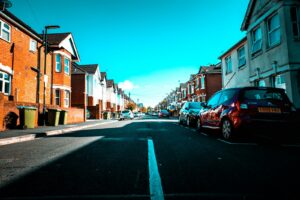Vaayu helps the likes of Klarna, New Balance, and Ace & Tate assess carbon footprints and circular opportunities, giving them information to cut emissions and waste at scale. Here’s how it works.
What exactly does Vaayu do, in the simplest terms, and when was the company founded?
Vaayu is the world’s first automated software empowering brands and businesses within the retail ecosystem to track and cut their carbon and environmental impact in real-time. It has created retail’s largest and most accurate impact database, which is continually evolving, to power reduction at scale.
By leveraging proprietary AI and machine learning technology, Vaayu calculates impacts such as carbon emissions, water and waste across product, packaging and logistics to visualise hotspots and help lead partners toward more sustainable choices. We bring together experts across retail, tech, life-cycle assessment [LCA], and legislation, enabling partners to navigate the regulatory landscape and build out scenarios for setting and tracking targets. Our methodology follows the GHG Protocol and has been certified by TÜV Rheinland.
Vaayu was co-founded in 2020 by Namrata Sandhu, CEO, and Luca Schmid, CTO, after they noticed a critical gap in the market for a real-time, impact-tracking tool to speed up reduction at scale. Since its inception, it has pioneered research into the climate impact potential of circular business models with Vinted, Otrium, and Carousell Group and calculated product footprints at scale for Klarna and Redcare Pharmacy, arming businesses and millions of consumers with robust impact data to guide more sustainable consumption. Other partners trusting Vaayu to guide their reductions include Veja, New Balance, Missoma, Ace & Tate, ASKET and Wunderman Thompson Commerce.
Why is Vaayu significant?
We have just six years to reach the Paris Agreement targets, limiting the rise in global temperature to 1.5°C. Retail is responsible for 25% of global carbon emissions, so Vaayu’s mission is to empower businesses to reduce 1 gigaton of carbon emissions by 2030, and is the only technology that accounts for the complexity of retail supply and value chains, from raw material extraction to the manufacture of physical goods and impact of last-mile delivery.
It performs automated activity-based impact calculations across different product life cycle stages – more accurate than the market’s standard spend-based approach – and goes beyond carbon to calculate the 16 environmental impact categories as endorsed by EU Product Environmental Footprint method, providing an all-in-one climate solution for partners and meaningful data for consumers.
Please explain how the AI programme works in practice, and how this can help retail footprints?
Previously, retailers lacked meaningful, scalable, up-to-date and accurate data to inform decision-making across their business. With Vaayu, retailers now have AI-driven LCA data to bolster reduction efforts. By leveraging proprietary AI and machine learning technology, Vaayu calculates impacts using certified LCA methodology to provide retailers with granular insights and inform data-driven decision-making.
Vaayu’s automated AI software accurately calculates the carbon footprint of all daily transactions using its proprietary database of more than 600,000 data points. Generating over 50,000 unique data points for every product calculated, it creates a digital twin to mirror the complexity of the supply chain in real life. The engine then deploys machine learning algorithms and predictive AI to fill in data gaps, providing a granular product footprint and an Accuracy Score per calculation as standard.
How much impact have you had so far?
Vaayu has onboarded more than 100 global brands, empowering them to lower their impact and drive down their footprints at scale. With fast growth throughout Europe, Vaayu caught the attention of retail brands and businesses worldwide, including the Carousell Group in Asia and New Balance in North America.
Vaayu is pioneering research into the impact of circular business models, one of the solutions to rapidly decarbonise retail, including current partnerships with Vinted, the largest online international customer-to-customer marketplace in Europe dedicated to second-hand fashion, and Otrium, the purpose-driven fashion outlet platform.
With the recent publication of Carousell Group’s Circular Economy Impact Report, Vaayu’s data is paving the way for businesses and consumers alike to understand the benefits of circular business models through data-driven insights that have the potential to drive awareness and adoption. There was no existing research on category-specific Replacement Rates at scale in the six markets that make up Carousell Group’s operations, positioning the report as a significant contribution to good practice in the sector and confirming Vaayu’s creation of the biggest primary dataset in Asia.
Are there other, equivalent platforms available?
Other impact-calculating software are industry-agnostic and do not provide a tailored solution to retailers or their specific needs. With solutions purpose-built for everything including product, packaging, logistics and corporate carbon footprinting, Vaayu’s technology caters solely to the industry and the gaps in current software and processes. Our software and APIs also easily integrate with tools commonly used by the retail industry, from point-of-sale systems to produce lifecycle management, production information management, and enterprise resource management, to ensure real-time data automation.
This is the only platform using an activity-based, certified methodology rather than the spend-based model that dominates the market, and provides more accurate calculations and insights into the entire supply and value chain, including a clearer view of Scope 3, which is notoriously difficult to calculate. Vaayu is providing world-first advances and setting the standard for the industry, with first-to-market features including scenario modeling and target tracking, including net zero and Science Based Targets Initiative.
How will the platform continue to grow and evolve in the coming years?
As Vaayu continues to grow its database and increase the volume and diversity of the data processed, its learning models will be able to support the engine in reaching more precise and granular results at scale. This technology is easily scalable across markets and retail verticals. Extending beyond fashion, apparel and footwear in 2023 to calculate the emissions of further retail verticals, consumer health, beauty, homewear and Garden, and electronics, we also expanded to new continents. We will continue growing into new markets, onboarding new partners and empowering science-based, data-driven decision-making at scale. Strides have been significant, but Vaayu remains acutely aligned with its mission to foster sustainable change in the retail sector in the name of decelerating climate change.
More quick questions:
Quick question: what policies should we prioritise to tackle plastic pollution?

















